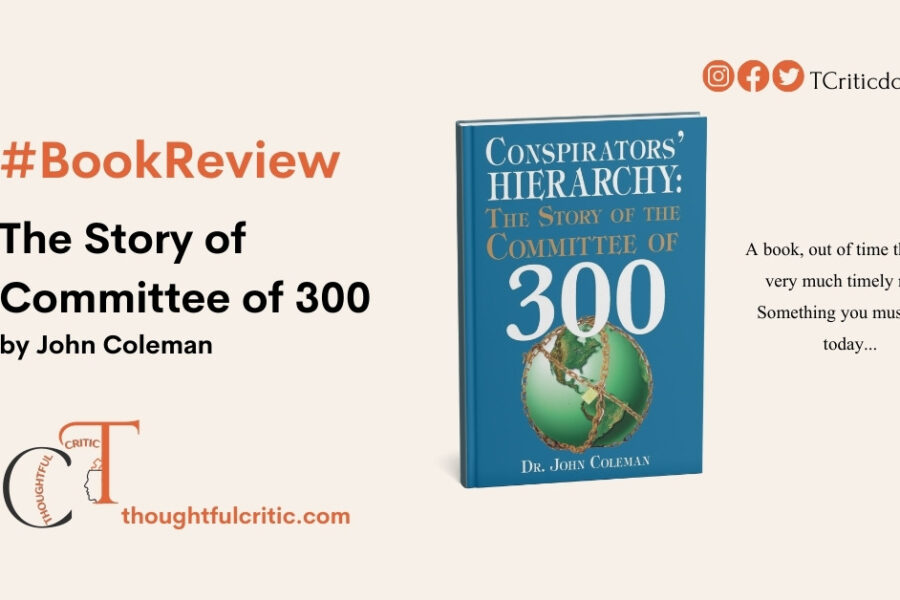Social media addiction must not be a new word to any of us. From teenagers to those in their 80s, women to kids, students to teachers, scholars to nincompoops, everybody knows what social media addiction is. However, just to set the tone for this book review of Jaron Lainer’s popular and bestselling book, let us begin with the elephant in the room. Social media addiction can lead to various problems affecting mental health, relationships, and daily functioning. It may contribute to increased anxiety, depression, and low self-esteem due to the constant comparison with others and the pressure to present a perfect online image. Excessive social media use can also lead to disrupted sleep patterns, decreased physical activity, and reduced face-to-face interactions, which can negatively impact overall well-being. Furthermore, social media addiction can strain personal relationships and hinder academic or work performance, as it may lead to neglecting responsibilities and real-life connections.
With these details, you can understand why people are inspiring other people to leave social media. Jaron Lanier, well-known as the founding figure of Virtual Reality, has written a book on the same topic. In his book, Ten Arguments for Deleting Your Social Media Accounts Right Now, the author argues that everybody should either leave social media, particularly Facebook and Twitter, now known as X, or limit their usage.
In “Ten Arguments for Deleting Your Social Media Accounts Right Now” by Lanier, readers are thrust into a compelling exploration of the pitfalls and dangers lurking within the realms of social media. Lanier, a seasoned insider of the tech world, delivers a thought-provoking critique of platforms that have become omnipresent in modern society. The book navigates through ten persuasive arguments, urging readers to reconsider their digital footprint. Despite the book’s commendable qualities, it’s essential to scrutinise potential drawbacks, such as its susceptibility to being perceived as somewhat outdated and the occasional lack of complete conviction in the author’s voice.
Lanier’s writing style is undeniably engaging, with a knack for distilling complex concepts into accessible narratives. The book successfully establishes its core premise – the potential harm caused by social media – and offers a compelling case for severing digital ties. Lanier’s insider status within the tech industry adds a layer of credibility to his arguments. As a computer scientist, virtual reality pioneer, and someone deeply entrenched in Silicon Valley, he possesses a unique perspective on the mechanisms and implications of social media that sets him apart from mere critics.
First of all, let’s have a look at some of the arguments that the author makes in his book telling readers to quit social media platforms. It will help us understand the book better. Please note that the arguments presented below are not exactly the same. These arguments reflect the sentiments and ideas of the author. To know about the original arguments, you will certainly have to read the book. 🙂
1. Behavior Manipulation:
Lanier argues that social media platforms employ sophisticated algorithms to manipulate user behaviour, subtly guiding and influencing choices to serve the platforms’ interests.
2. Addiction and Pavlovian Conditioning:
The book delves into how social media platforms employ addictive designs, fostering a Pavlovian response where users are conditioned to seek constant validation through likes, comments, and other engagement metrics.
3. Erosion of Free Will:
Lanier explores how the constant surveillance and manipulation of social media erode individual free will, making users more susceptible to external influences and decisions.
4. Social Media as a Propaganda Machine:
The book highlights how social media can be exploited to spread misinformation, fake news, and propaganda, leading to the amplification of divisive ideologies and polarization.
5. Undermining Truth and Trust:
Lanier argues that the algorithms employed by social media platforms prioritize sensational content over accuracy, contributing to the erosion of truth and trust in online information.
6. Loss of Privacy:
The book discusses how the pervasive nature of social media compromises individual privacy, with users willingly trading personal information for access to the platforms.
7. Cultivation of Addiction:
Lanier explores the deliberate strategies used by social media platforms to keep users addicted, leading to excessive screen time, distraction, and potential detriments to mental health.
These arguments collectively paint a comprehensive picture of the potential harms associated with social media use, urging readers to consider reevaluating their relationship with these platforms.
However, as the digital landscape is ever-evolving, some readers may find aspects of the book bordering on the outdated. The rapid pace of technological advancement often renders certain specifics obsolete, and readers looking for the latest insights might feel the need for a more current perspective. Lanier does acknowledge the challenges of keeping pace with the swiftly changing tech environment, but this admission could leave readers yearning for more up-to-date analyses.
Another nuanced aspect of the book is the occasional wavering conviction in Lanier’s tone. While he passionately argues for the abandonment of social media, there are instances where the fervour seems to ebb, leaving room for doubt. This wavering tone might affect the overall persuasiveness of the arguments for some readers. Clarity and unwavering confidence in the author’s stance are crucial when attempting to convince a diverse audience with varying levels of tech literacy.
Some readers can also find that the book is written in a hurry or rather casually. The use of common slang like @$$hole makes it sound amusing, more than it might ever sound earnest. On the flip side, if you think with a few pauses, the book is just rightly suitable for youths who have not seen the transition from analogue to digital. They will relate to it far more and better than we ever can!
Yet, it’s imperative to underscore the book’s substantial merits. Lanier’s deep understanding of the dark underbelly of social media, stemming from his insider knowledge, lends weight to his words. He decodes the algorithms, unveils the manipulative designs, and sheds light on the subtle coercions employed by these platforms to keep users hooked. His firsthand experiences in Silicon Valley provide a behind-the-scenes glimpse into the intentions and mechanisms that drive the industry. As an insider-turned-critic, Lanier brings a unique blend of authority and authenticity to the narrative.
One of the book’s strengths lies in its structure – the ten arguments are methodically laid out, each presenting a distinct facet of the social media conundrum. From the erosion of free will to the manipulation of behaviour through algorithms, Lanier crafts a comprehensive framework that covers a spectrum of concerns. Each argument is supplemented with real-world examples and anecdotes, enhancing the accessibility of the book for readers regardless of their technical background.
Furthermore, Lanier’s emphasis on the impact of social media on individual well-being is both timely and crucial. The erosion of privacy, the amplification of tribalism, and the cultivation of addiction are dissected with surgical precision. His plea for readers to reassess their relationship with these platforms and consider the broader societal implications is a poignant call to action.
In conclusion, “Ten Arguments for Deleting Your Social Media Accounts Right Now” by Jaron Lanier serves as a compelling exposé of the perils embedded in our digital interactions. While the book’s commendable qualities, including Lanier’s insider perspective and the well-structured arguments, make it a valuable read, potential drawbacks like perceived outdatedness and occasional wavering conviction should be acknowledged. As an insider-turned-critic, Lanier’s insights are invaluable, and readers are urged to take his words seriously in their contemplation of the role social media plays in their lives.
Want to read the book? Click here to get a copy from Amazon right now.
Want to read more books on social media? Here you go – Books on Social Media Addiction
Review by Alka for Tougthtful Critic
Ten Arguments for Deleting Your Social Media Accounts Right Now by Jaron Lanier, a book review
-
Critical Rating
Summary
A serious topic… dealt with casually and rather lightly… while Lanier’s intentions may be noble, the book does lack more than it offers. Nevertheless, with whatever it has, this book is a must-read for youths and anyone else who is addicted to the use of Social Media. Get a copy today!




